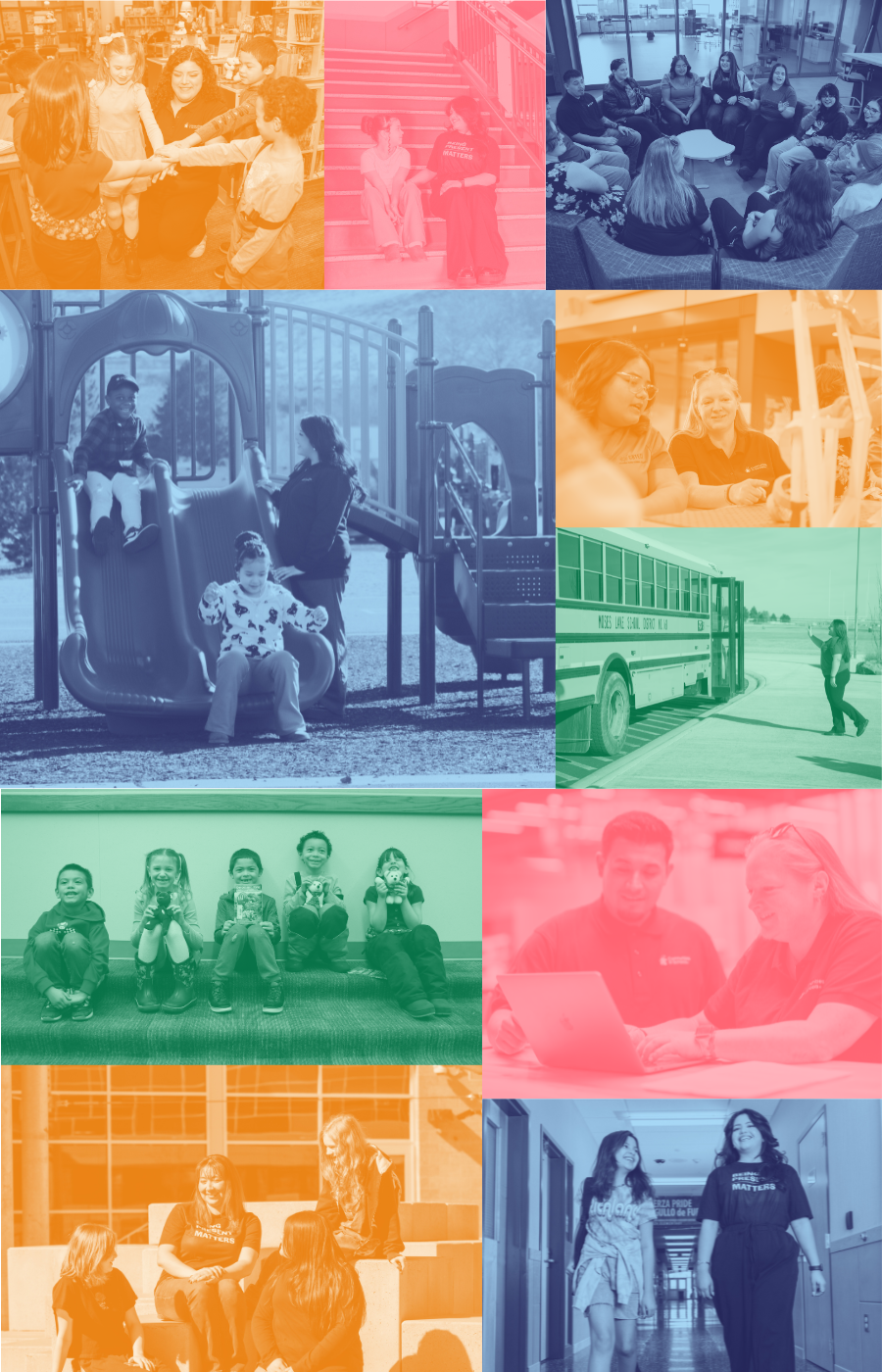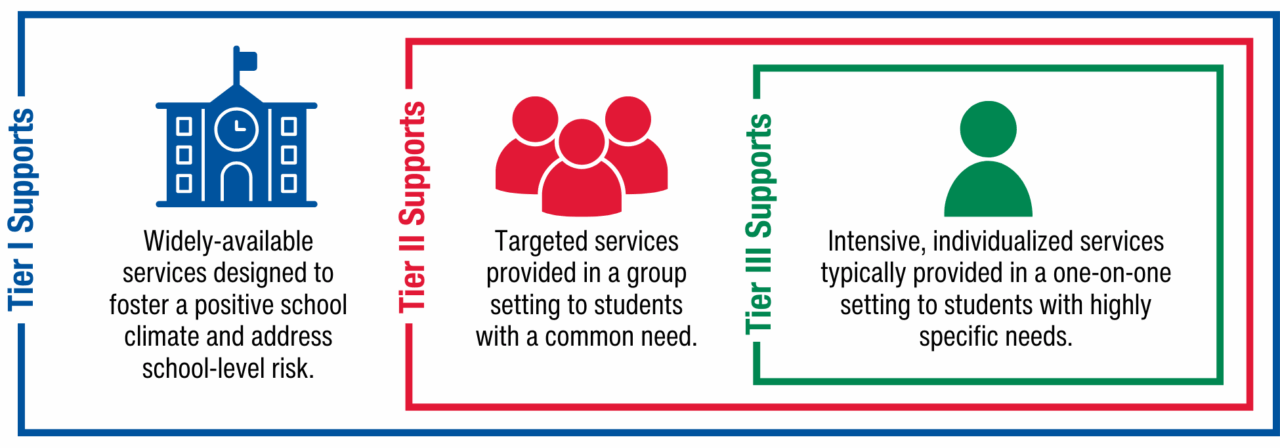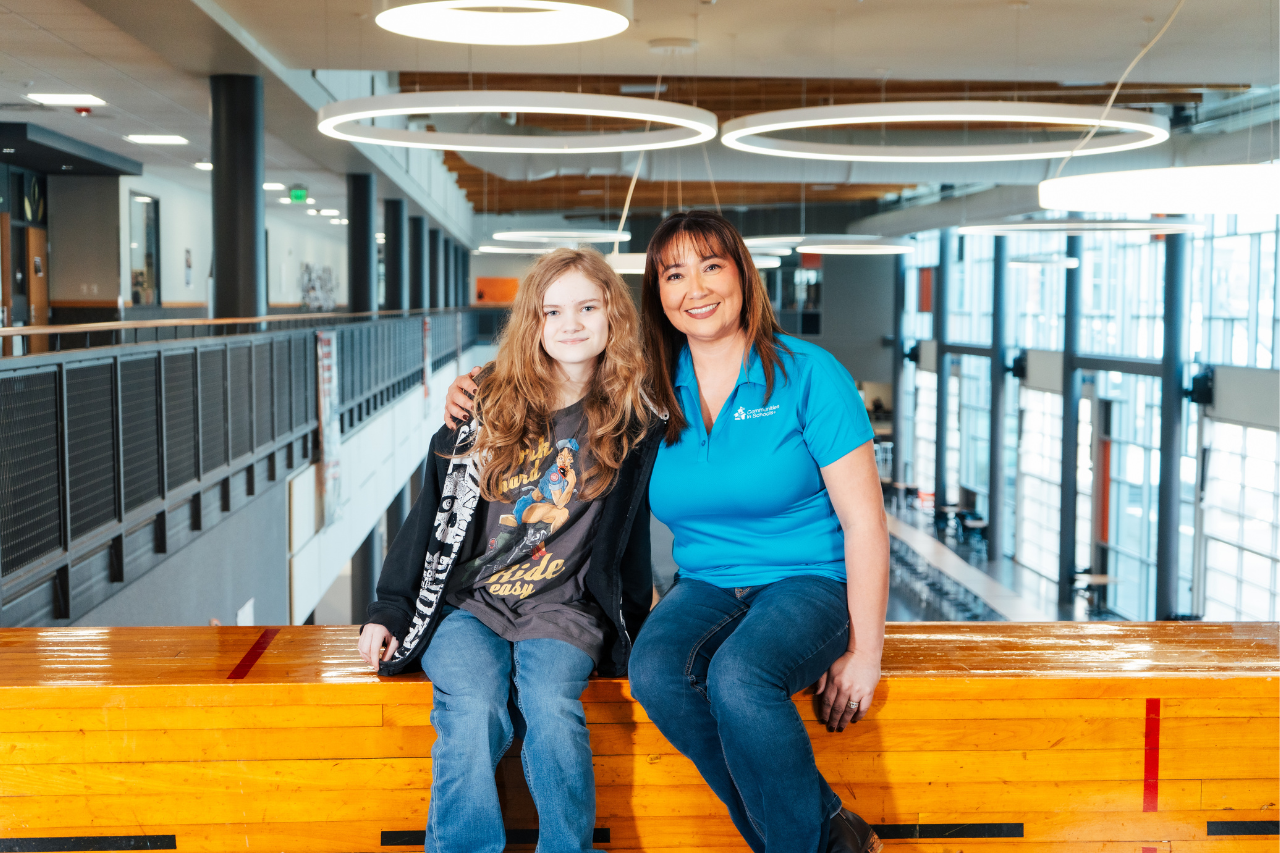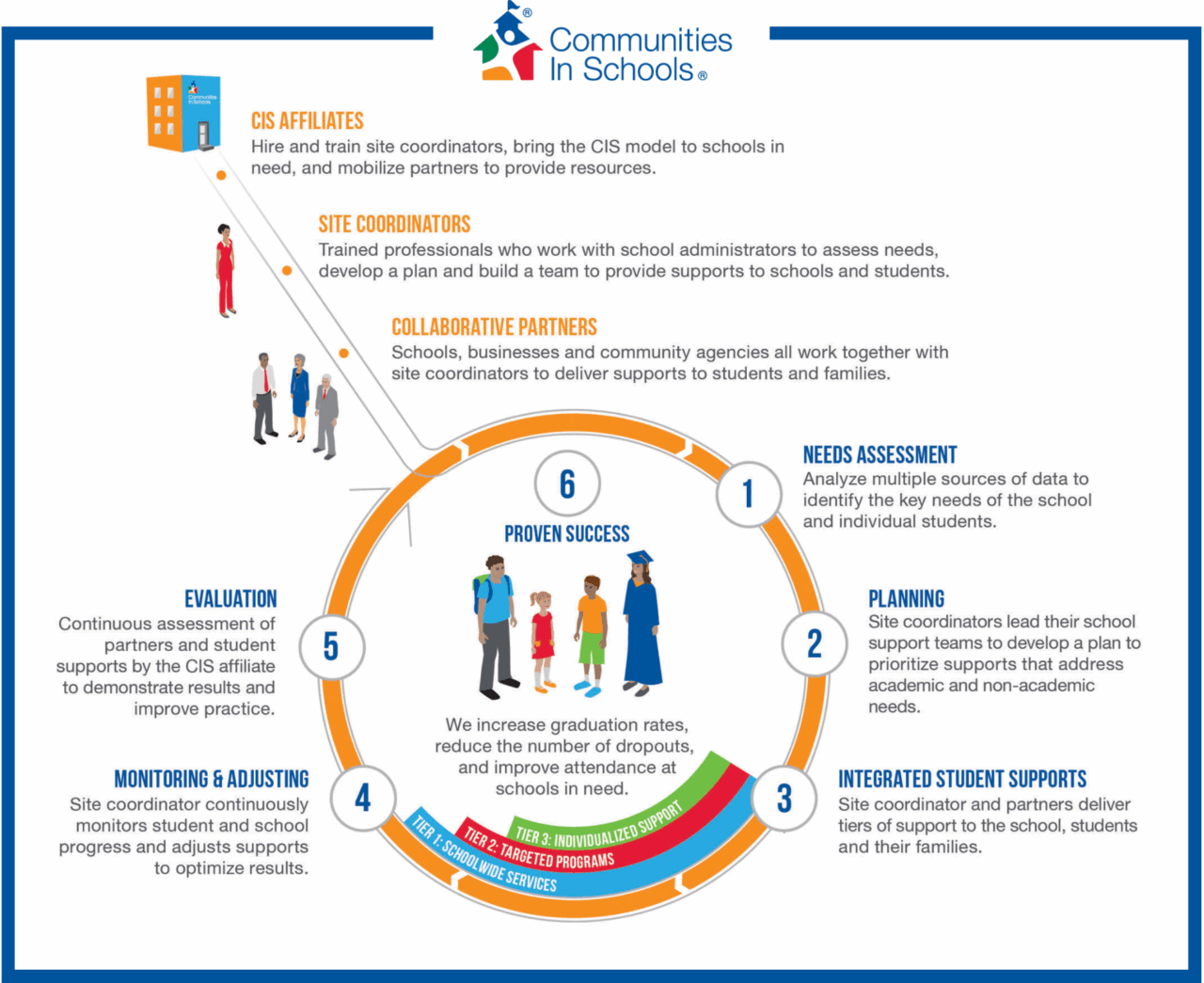Helping Students Succeed Across Washington
The CIS WA Network supports over 200 schools statewide by surrounding students with a comprehensive system of academic and non-academic supports. Guided by a data-informed, relationship-driven approach, the network empowers students to stay in school and achieve success in life.
Taking a whole-child perspective, the CIS WA Network implements the Integrated Student Supports (ISS) model. While Site Coordinators work directly inside schools, CIS affiliates operate as independent, community-based organizations—allowing flexibility to advocate, build partnerships, and mobilize resources tailored to the unique needs of students and families.
By collaborating closely with school staff and community partners, the CIS WA Network removes barriers to learning and ensures equitable access to the tools, relationships, and opportunities that help every student thrive.


The CISWA State Office Framework
The Communities In Schools model drives student success by equipping emerging and independent affiliates, along with site based staff and coordinators, to deliver tailored, integrated student supports (ISS).

Integrated Support Model and Tiered Levels of Support
The Integrated Support Model organizes services across three tiers, ranging from schoolwide prevention efforts to individualized student support (ISS).


Tier I – Schoolwide Services
Universal supports designed to create a positive school climate and address risk factors affecting the entire student body.
Focus Areas:
• Academic Assistance
• Attendance Improvement
• College & Career Readiness
• Digital Equity & Access
• Life/Social Skills Development
• Enrichment & Motivation
• Basic Needs Distribution
• Family Engagement
• Behavioral Interventions
• Physical Health Services
• Civic Engagement
• Mental Health Awareness
Tier II – Targeted Group Supports
Group-based supports designed for students with shared needs or challenges. These services typically occur regularly and are aligned with schoolwide goals.
• Social-emotional learning groups
• Academic workshops
• Attendance clubs
• Family support cohorts
Tier III – Individualized Services
One-on-one supports for students facing significant or complex barriers, delivered through a case management model.
• Individualized goal setting
• Mental health navigation
• Personalized mentoring
• Crisis intervention and follow-up

Site Coordinators: Community-Based School Leaders
Site Coordinators are trained professionals embedded within schools who assess needs, coordinate services, and build relationships with students, families, and partners.
Their role includes:
- Conducting needs assessments for students and school communities
- Engaging volunteers and coordinating service providers
- Connecting students to critical supports—counseling, food assistance, academic help, and mentorship
- Brokering community resources in collaboration with local organizations and businesses
These personalized, responsive connections ensure that every student has access to tools, guidance, and opportunities that support long-term success.

The CISWA State Office supports the Washington network in a number of ways, including:
| Category | Examples |
|---|---|
| On-Demand Support |
|
| Annual Programming |
|
| Monthly Touchpoints |
|
| Data & Evaluation Support |
|
| Policy & Advocacy |
|
| Affiliate Visits |
|

Communities In Schools: The Unique & Proven National Model

How the CIS WA Network Delivers Integrated Student Supports
1.
Discover Needs
Through conversations with teachers and students, alongside robust data analysis, CIS site coordinators identify the biggest challenges facing schools and individuals.
2.
Plan Together
CIS site coordinators work with school administrators and educators to develop a plan that prioritizes the various academic and non-academic supports that meet students needs.
3.
Integrate Supports
CIS site coordinators work with school teams every day to integrate the supports identified in the planning process. That’s how CIS becomes an integral part of a school community and student’s lives.
4.
Monitor, Evaluate, Adjust
CIS site coordinators work with schools to continuously monitor student and school progress, using the data and feedback to optimize results. Continuous assessment of partners and student supports help us increase our impact.